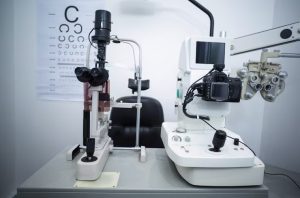All Categories
Featured
Healthy vision is a cornerstone of high quality of life, yet lots of people underestimate the importance of nutrition in maintaining eye health and wellness. A diet plan abundant in particular nutrients can shield your eyes, minimize the risk of establishing common eye illness, and support overall ocular function. Allow's discover just how nourishment effects your vision and the key nutrients you should consist of in your day-to-day meals.
Necessary Nutrients for Eye Health
Vitamin A. Understood for its role in preserving vision, vitamin A is crucial for maintaining a healthy and balanced cornea and allowing low-light vision. Shortage in vitamin A can lead to night blindness and other significant eye conditions. Excellent sources include carrots, wonderful potatoes, and dark leafy environment-friendlies.
Lutein and Zeaxanthin. Located in high focus in the retina, these anti-oxidants safeguard versus damages brought on by blue light and oxidative tension. Consuming foods like spinach, kale, broccoli, and eggs can help maintain your eyes healthy.
Omega-3 Fat. Omega-3s are important for the health of the retina and can help in reducing signs of completely dry eye syndrome. Consist of fatty fish such as salmon, tuna, and mackerel in your diet plan, or choose plant-based resources like chia seeds and walnuts.
Vitamin C. A powerful antioxidant, vitamin C sustains the wellness of blood vessels in the eyes and may decrease the threat of cataracts. Foods abundant in vitamin C consist of oranges, strawberries, bell peppers, and tomatoes.
Vitamin E. This nutrient shields eye cells from oxidative damages. Incorporate almonds, sunflower seeds, and avocados right into your meals to increase vitamin E levels.
Zinc. Zinc plays a crucial function in transferring vitamin A from the liver to the retina, helping in the manufacturing of melanin, a safety pigment in the eyes. Foods such as oysters, beef, and strengthened grains are excellent sources.
![]()
Avoiding Eye Conditions With Diet Plan
Macular Degeneration: Antioxidants like lutein, zeaxanthin, and vitamins C and E can aid slow down the development of age-related macular degeneration (AMD)
Cataracts: Appropriate consumption of vitamin C and other anti-oxidants may delay the start or stop of cataracts.
![]()
Dry Eyes: Omega-3 fatty acids help boost tear high quality and minimize completely dry eye symptoms.
Diabetic Retinopathy: A diet low in polished sugars and abundant in entire foods can assist manage blood glucose levels, minimizing the threat of this condition in individuals with diabetes mellitus.
Practical Nourishment Tips
Diversify Your Diet Regimen: Include a range of fruits, vegetables, lean healthy proteins, and whole grains to guarantee you're getting a wide variety of nutrients.
Limit Processed Foods: Reduce intake of sugarcoated and harmful fats, which can add to systemic health concerns affecting your eyes.
Remain Hydrated: Correct hydration sustains tear manufacturing and prevents eye dryness.
Think About Supplements: If your diet regimen does not have particular nutrients, seek advice from a healthcare carrier regarding taking supplements for much better eye health.
Conclusion
![]()
Great nourishment is a vital facet of keeping ideal eye health. By integrating nutrient-dense foods right into your diet plan, you can decrease the threat of eye illness and protect your vision for the long-term. Making notified dietary selections today can safeguard your sight for many years to find. If you're unclear where to begin, an examination with a nutritionist or medical care expert can offer customized advice customized to your requirements.
Necessary Nutrients for Eye Health
Vitamin A. Understood for its role in preserving vision, vitamin A is crucial for maintaining a healthy and balanced cornea and allowing low-light vision. Shortage in vitamin A can lead to night blindness and other significant eye conditions. Excellent sources include carrots, wonderful potatoes, and dark leafy environment-friendlies.
Lutein and Zeaxanthin. Located in high focus in the retina, these anti-oxidants safeguard versus damages brought on by blue light and oxidative tension. Consuming foods like spinach, kale, broccoli, and eggs can help maintain your eyes healthy.
Omega-3 Fat. Omega-3s are important for the health of the retina and can help in reducing signs of completely dry eye syndrome. Consist of fatty fish such as salmon, tuna, and mackerel in your diet plan, or choose plant-based resources like chia seeds and walnuts.
Vitamin C. A powerful antioxidant, vitamin C sustains the wellness of blood vessels in the eyes and may decrease the threat of cataracts. Foods abundant in vitamin C consist of oranges, strawberries, bell peppers, and tomatoes.
Vitamin E. This nutrient shields eye cells from oxidative damages. Incorporate almonds, sunflower seeds, and avocados right into your meals to increase vitamin E levels.
Zinc. Zinc plays a crucial function in transferring vitamin A from the liver to the retina, helping in the manufacturing of melanin, a safety pigment in the eyes. Foods such as oysters, beef, and strengthened grains are excellent sources.

Avoiding Eye Conditions With Diet Plan
Macular Degeneration: Antioxidants like lutein, zeaxanthin, and vitamins C and E can aid slow down the development of age-related macular degeneration (AMD)
Cataracts: Appropriate consumption of vitamin C and other anti-oxidants may delay the start or stop of cataracts.

Dry Eyes: Omega-3 fatty acids help boost tear high quality and minimize completely dry eye symptoms.
Diabetic Retinopathy: A diet low in polished sugars and abundant in entire foods can assist manage blood glucose levels, minimizing the threat of this condition in individuals with diabetes mellitus.
Practical Nourishment Tips
Diversify Your Diet Regimen: Include a range of fruits, vegetables, lean healthy proteins, and whole grains to guarantee you're getting a wide variety of nutrients.
Limit Processed Foods: Reduce intake of sugarcoated and harmful fats, which can add to systemic health concerns affecting your eyes.
Remain Hydrated: Correct hydration sustains tear manufacturing and prevents eye dryness.
Think About Supplements: If your diet regimen does not have particular nutrients, seek advice from a healthcare carrier regarding taking supplements for much better eye health.
Conclusion

Great nourishment is a vital facet of keeping ideal eye health. By integrating nutrient-dense foods right into your diet plan, you can decrease the threat of eye illness and protect your vision for the long-term. Making notified dietary selections today can safeguard your sight for many years to find. If you're unclear where to begin, an examination with a nutritionist or medical care expert can offer customized advice customized to your requirements.
Latest Posts
Uncover Exceptional Car Repair Services offered by Montclare Auto Repair – Reliable Repairs Await
Published May 28, 25
1 min read
Discover Your Wyoming Banking Partner – The Key to Better Banking in Wyoming
Published May 27, 25
1 min read
Discover WyHy FCU – Top Benefits for Your Financial Success
Published May 24, 25
1 min read
More
Latest Posts
Uncover Exceptional Car Repair Services offered by Montclare Auto Repair – Reliable Repairs Await
Published May 28, 25
1 min read
Discover Your Wyoming Banking Partner – The Key to Better Banking in Wyoming
Published May 27, 25
1 min read
Discover WyHy FCU – Top Benefits for Your Financial Success
Published May 24, 25
1 min read